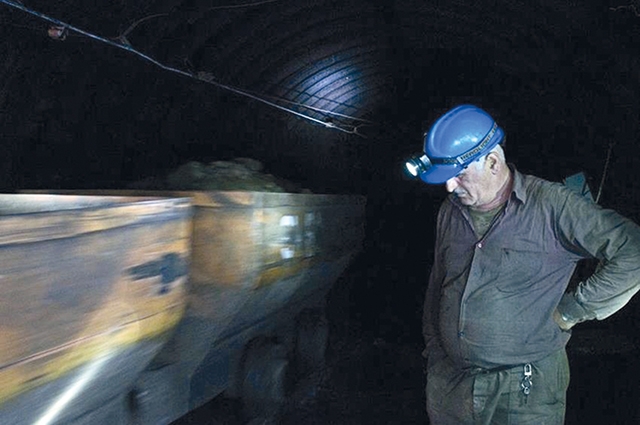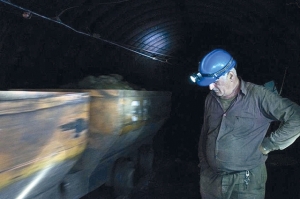Miners from Tkibuli Stop Strike
The initiative group of miners from Dzidziguri mine in Tkibuli announced the suspension of their strike, which was launched several days ago.
The miners stated they will stop boycotting the company because the employer Coal of Georgia has agreed to meet part of their demands. With the involvement of the Tkibuli Miners’ Initiative Group, they held numerous meetings and repeatedly voiced their concerns in various ways.
“At this point, the company is assuming responsibility to meet some of our requirements. Due to the current situation in the country, we have stopped protesting. We would like to thank all those who have stood by the miners these days,” the group said.
The protest followed the decision of the company to temporarily shut down the Dzidziguri shaft, “forcing” employees to enter the mine via a hazardous underground ventilation tunnel, which workers refused to use after five miners were taken to Kutaisi hospital allegedly due to poisoning from the gas accumulated in the same tunnel.
The employees also called on the company to pay them for the missed days and not to lay them off.
"We have received a written promise from the company that we will be paid for the missed hours. Reconstruction works will be conducted in the tunnel and miners will not be fired," Ruslan Butskhrikidze, one of the miners, told media.
Kote Eristavi, director of the non-governmental organization EMC Social Program, which protects workers' interests, says the company and miners agreed that the employer will compensate the workers for the days they had to miss due to safety concerns; however, the conditions inside the mine have not changed.
“The workers will have to travel through that same tunnel again. The Labor Inspectorate went to Tkibuli, inspected the mine, talked to the poisoned miners, and now we are waiting for the results of the inspection,” he said.
During the protests, the miners claimed that the ventilation tunnel is tricky to move through and is not safe as it emits exhaust gases from the entire shaft.
“We have to walk around 4 kilometers daily in this dangerous environment. Poisoning and fatalities can occur at any time,” they said last week.
They also noted that after the tragic death of 10 miners in 2018, the Prime Minister promised that unless the working environment was made safe, coal mining would not continue. This promise was not kept.
Coal has been extracted from Georgia’s western town of Tkibuli since the 19th century. After the collapse of the Soviet Union, the works were suspended and only resumed in 2006.
Dozens of workers have since been injured and killed in the workplace, which has sparked many protests in the country.
One of the most critical times in recent history was in April and June 2018, when 10 workers were killed and 9 injured in industrial accidents in the most prominent mine of Tkibuli - Mindeli mine.
The mines in Tkibuli were owned by Saknakhshiri company for many years, but in September 2019 it announced its decision to quit the business.
At the time, on the background of the miners' protest, Minister of Economy Natia Turnava went to Tkibuli and pledged to replace Saknakhshiri with another company, the Steel International Trade Company, which would invest $500 million, pay salaries and resume work in the mines from November 2019.
The Public Registry records show that the company bought shares of Saknakhshiri on September 27, 2019 for a symbolic price of GEL1. When the miners returned to work, a new company was in the administration. Miners say work has resumed in the mines but the working conditions have not improved. On the contrary, they have deteriorated, they claim.
By Tea Mariamidze
Image source: publika.ge











